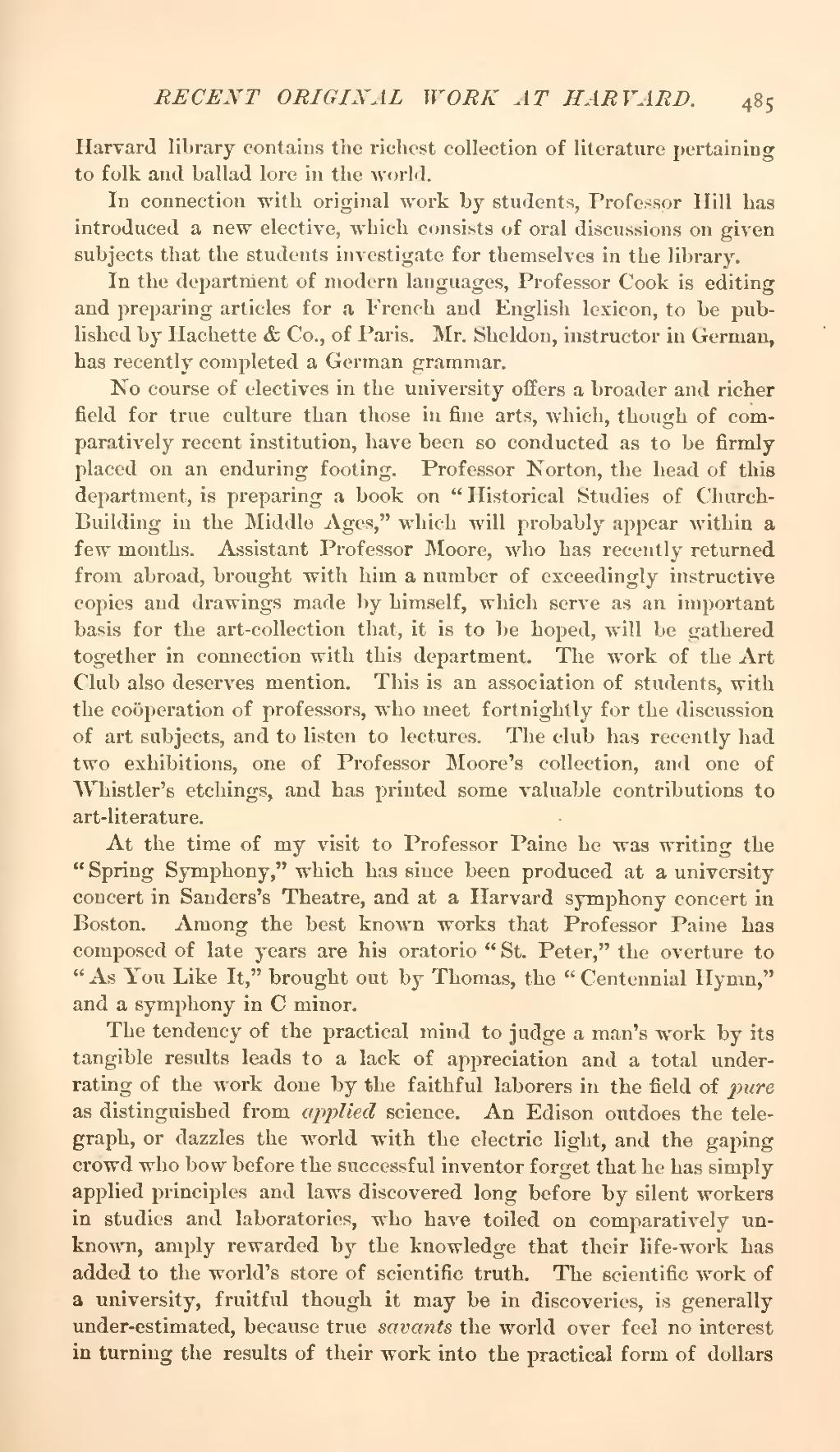Harvard library contains the richest collection of literature pertaining to folk and ballad lore in the world.
In connection with original work by students, Professor Hill has introduced a new elective, which consists of oral discussions on given subjects that the students investigate for themselves in the library.
In the department of modern languages, Professor Cook is editing and preparing articles for a French and English lexicon, to be published by Hachette & Co., of Paris. Mr. Sheldon, instructor in German, has recently completed a German grammar.
No course of electives in the university offers a broader and richer field for true culture than those in fine arts, which, though of comparatively recent institution, have been so conducted as to be firmly placed on an enduring footing. Professor Norton, the head of this department, is preparing a book on "Historical Studies of Church Building in the Middle Ages," which will probably appear within a few months. Assistant Professor Moore, who has recently returned from abroad, brought with him a number of exceedingly instructive copies and drawings made by himself, which serve as an important basis for the art-collection that, it is to be hoped, will be gathered together in connection with this department. The work of the Art Club also deserves mention. This is an association of students, with the cooperation of professors, who meet fortnightly for the discussion of art subjects, and to listen to lectures. The club has recently had two exhibitions, one of Professor Moore's collection, and one of Whistler's etchings, and has printed some valuable contributions to art-literature.
At the time of my visit to Professor Paine he was writing the "Spring Symphony," which has since been produced at a university concert in Sanders's Theatre, and at a Harvard symphony concert in Boston. Among the best known works that Professor Paine has composed of late years are his oratorio "St. Peter," the overture to "As You Like It," brought out by Thomas, the "Centennial Hymn," and a symphony in C minor.
The tendency of the practical mind to judge a man's work by its tangible results leads to a lack of appreciation and a total underrating of the work done by the faithful laborers in the field of pure as distinguished from applied science. An Edison outdoes the telegraph, or dazzles the world with the electric light, and the gaping crowd who bow before the successful inventor forget that he has simply applied principles and laws discovered long before by silent workers in studies and laboratories, who have toiled on comparatively unknown, amply rewarded by the knowledge that their life-work has added to the world's store of scientific truth. The scientific work of a university, fruitful though it may be in discoveries, is generally under-estimated, because true savants the world over feel no interest in turning the results of their work into the practical form of dollars

